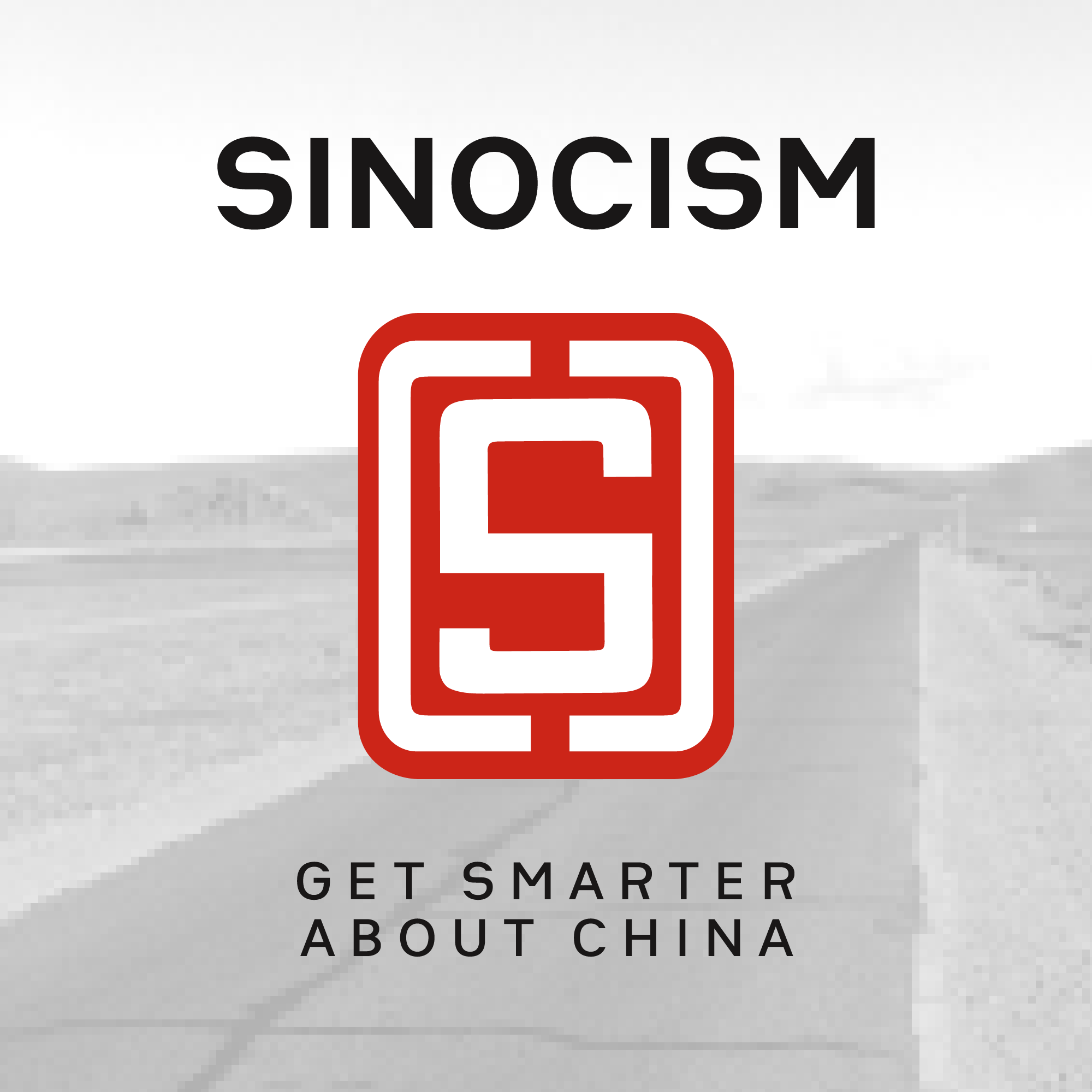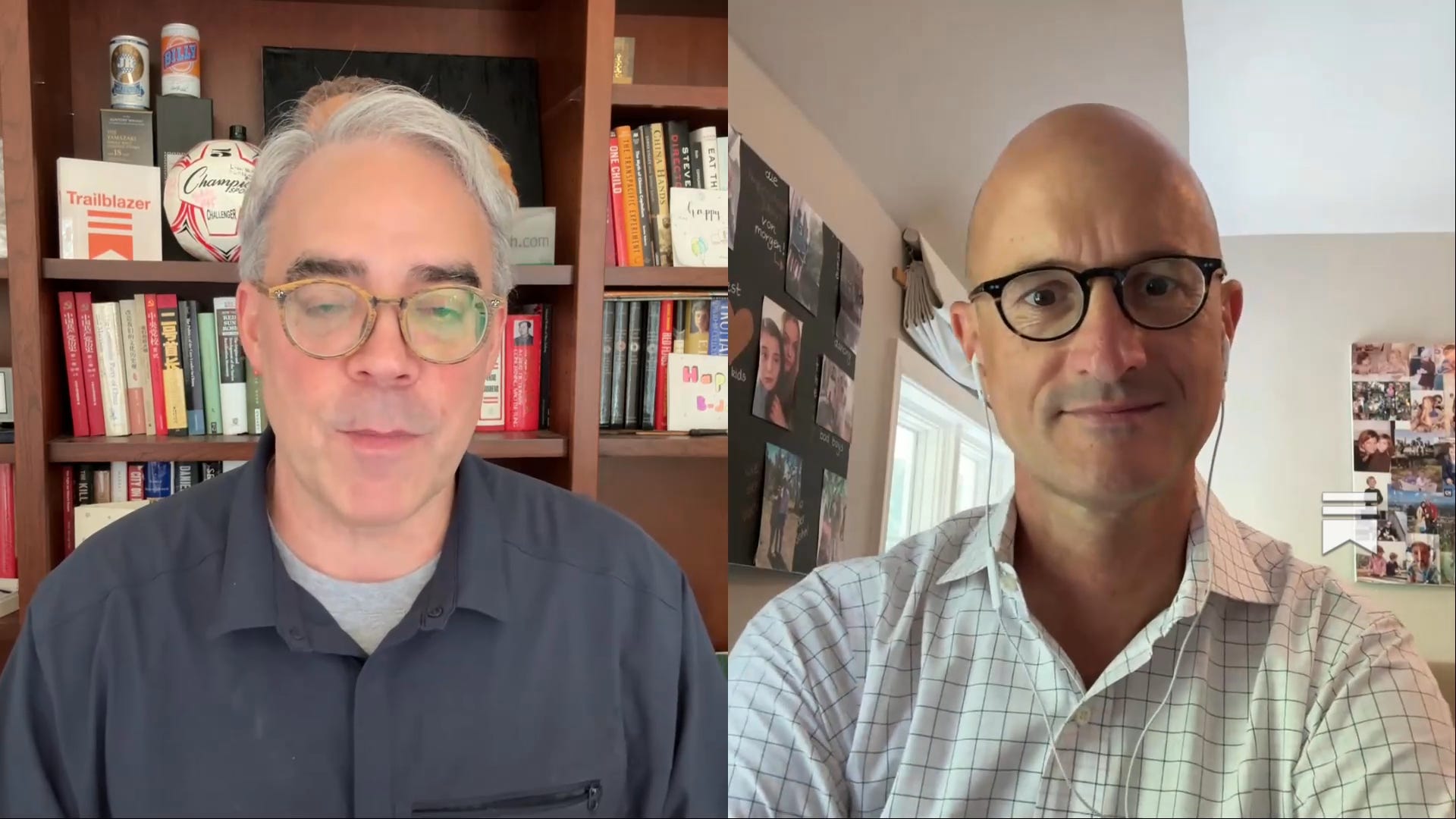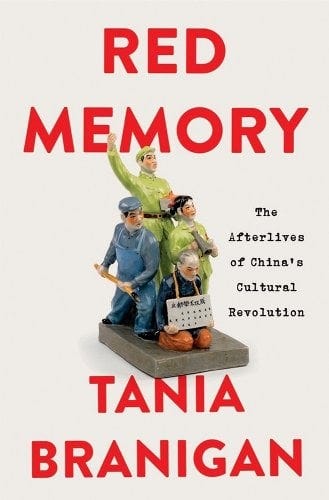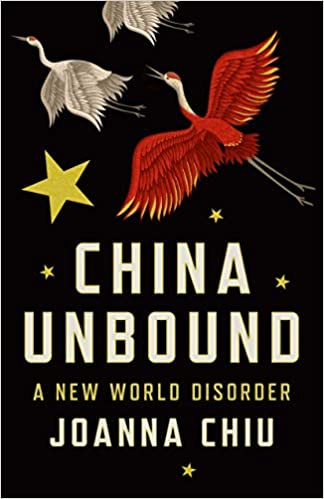Sinocism Podcast #4: The Economist's David Rennie on online nationalism, discourse power, reporting from China, US-China relations
Description
Episode Notes:
This episode's guest is David Rennie, the Beijing bureau chief for The Economist and author of the weekly Chaguan column. Our topic is online discourse, nationalism, the intensifying contest for global discourse power and US-China relations.
Excerpts:
I spoke to some very serious NGO people who've been in China a long time, Chinese and foreigners who said that this was the worst time for NGOs since 1989, and the kind of mentions of espionage and national security was a very serious thing. So then I had to make a decision, was I going to try and speak to someone like Sai Lei. Clearly he is an extremely aggressive nationalist, some would call him a troll and there are risks involved in talking to someone like him. But I felt, I'm one of the few English language media still in China, if I'm going to add value, I need to speak to these people.
I had a very interesting conversation with a CGTN commentator…He said, I can't tell you how many Western diplomats, or Western journalists they whine. And they moan. And they say, how aggressive China is now and how upset all this Wolf warrior stuff is and how China is doing itself damage. And he goes, we're not, it's working. You in the Western media, used to routinely say that the national people's Congress was a rubber stamp parliament. And because we went after you again and again, you see news organizations no longer as quick to use that. Because we went after you calling us a dictatorship, you're now slower to use that term because we went after you about human rights and how it has different meanings in different countries. We think it's having an effect…
One of the things I think is a value of being here is you have these conversations where the fact that we in the West think that China is inevitably making a mistake by being much more aggressive. I don't think that's how a big part of the machine here sees it. I think they think it worked….
To simplify and exaggerate a bit, I think that China, and this is not just a guess, this is based on off the record conversations with some pretty senior Chinese figures, they believe that the Western world, but in particular, the United States is too ignorant and unimaginative and Western centric, and probably too racist to understand that China is going to succeed, that China is winning and that the West is in really decadent decline…
I think that what they believe they are doing is delivering an educational dose of pain and I'm quoting a Chinese official with the word pain. And it is to shock us because we are too mule headed and thick to understand that China is winning and we are losing. And so they're going to keep delivering educational doses of pain until we get it…
The fundamental message and I'm quoting a smart friend of mine in Beijing here is China's rise is inevitable. Resistance is futile…
And if you accommodate us, we'll make it worth your while. It's the key message. And they think that some people are proving dimmer and slower and more reluctant to pick that message up and above all Americans and Anglo-Saxons.
On US-China relations:
The general trend of U.S. China relations. to be of optimistic about the trend of U.S. China relations I'd have to be more optimistic than I currently am about the state of U.S. Politics. And there's a kind of general observation, which is that I think that American democracy is in very bad shape right now. And I wish that some of the China hawks in Congress, particularly on the Republican side, who are also willing to imply, for example, that the 2020 election was stolen, that there was massive fraud every time they say that stuff, they're making an in-kind contribution to the budget of the Chinese propaganda department…
You cannot be a patriotic American political leader and tell lies about the state of American democracy. And then say that you are concerned about China's rise…
..their message about Joe Biden is that he is weak and old and lacks control of Congress. And that he is, this is from scholars rather than officials, I should say, but their view is, why would China spend political capital on the guy who's going to lose the next election?…
The one thing that I will say about the U.S. China relationship, and I'm very, very pessimistic about the fact that the two sides, they don't share a vision of how this ends well.
Links:
China’s online nationalists turn paranoia into clickbait | The Economist
David Rennie on Twitter @DSORennie
Transcript:
You may notice a couple of choppy spots. We had some Beijing-VPN issues and so had to restart the discussion three times.
Bill:
Hi, everyone. Welcome back to the `Sinocism podcast. It's been a bit of a break, but we are back and we will continue going forward on a fairly regular schedule today. For the fourth episode, I'm really happy to be able to chat with David Rennie, the Beijing bureau chief for The Economist and author of the weekly Chaguan column. Our topic today is online discourse, nationalism, and the intensifying contest for global discourse power.
Bill:
I've long been a fan of David's work and the approximate cause for inviting him to join the podcast today was an article on the January 8th issue of The Economist on online nationalism. Welcome David.
David:
Hello.
Bill:
So just to start, could you tell us how you got to where you are today?
David:
I've been a foreign correspondent for frighteningly long time, 24 years. And it's my second China posting. I've been out there so long. I've done two Chinas, two Washingtons, five years in Brussels. I was here in the '90s and then I went off, spent a total of nine years in Washington, DC. And then I came back here in 2018 and I was asked to launch a new column about China called Chaguan, because previously I wrote our Lexington column and our Bagehot column about Britain and our Charlemagne column about Europe. They all have strange names, but that's what we do. And so this is my fourth column for The Economist.
Bill:
We last met, I think in 2018 in Beijing in what seems like before times in many ways at The Opposite House, I believe.
David:
And the days when we had visitors, people came from the outside world, all of those things.
Bill:
Yes. You are quite the survivor, as they say. Although there are advantages to not worry about walking outside and getting sick all the time. Although it's better here in DC now.
David:
It's a very safe bubble. It's a very large bubble, but it's a bubble.
Bill:
So let's talk about your article, the January 8th issue. It was titled “China's online nationalist turned paranoia into click bait”. And I thought it was a very good distillation of the surge in nationalists and anti foreign content that is really flooding or was flooded the internet in China. And you interviewed one of the people who's profiting from it because it turns out that not only is it good from a sort of a sentiment perspective, but it's also good from a business perspective.
Bill:
And that person Sai Lei, interestingly enough, then recorded your conversation and turned it into a whole new post and video about the whole experience of talking to a foreign correspondent. Can you tell us a little about the story and why you chose to write it and just to add the links to David's article and the Sai Lei article will be in the podcast notes.
David:
So I heard from friends and colleagues, a couple of things in two directions. One was that in the world of private sector media, a couple of reasonably well known explainer sites, popular science video companies had been taken out of business by nationalist attacks. One was called Paperclip, the other called Elephant Union. And their crime in the eyes of online nationalists had been to talk about things which are fairly uncontroversial in Western media, that eating beef from the Amazon or eating beef that is fed soy grown in the Amazon is potentially bad for the rainforest and maybe we should eat less meat.
David:
But because this was in the Chinese context, that China is the biggest buyer of soybeans, this explainer video was attacked as a plot to deny the Chinese people the protein that they need to be strong, that this was a race traitor attack on the Chinese. And it was outrageous because the West eats so much more meat than China. And so that was one element of it. And I heard that these companies had been shut down. The other was that I'd been picking up that this was an extremely bad time for NGOs, particularly Chinese NGOs that get money from overseas. And we'd seen some really nasty attacks, not just on the idea that they were getting money from overseas, but that they were somehow guilty of espionage.
David:
And there was an NGO that did incredibly benign work. Tracking maritime and Marine trash, as it floats around the coasts of China based in Shanghai, Rendu Ocean. I'd done a column on them the year before I'd been out with their volunteers. It was a bunch of pensioners and retirees and school kids picking up styrofoam and trash off beaches, weighing it, tracking where it came from and then uploading this data to try and track the fact that China is a big






















